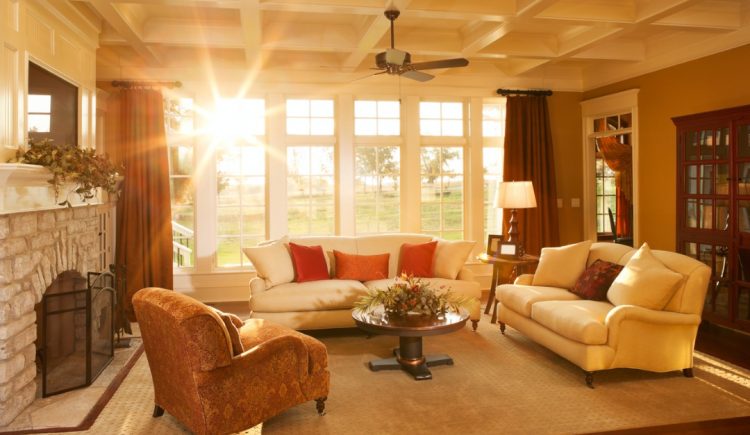For many people who are searching for their next home, natural light is important. A house that gets a lot of sunlight has significant advantages, but there can be too much of a good thing.
Natural Light Has Mental Health Benefits
Exposure to sunlight can improve your mood, make you feel alert and energized, and help you be focused and productive. Those benefits can be particularly important if you work from home.
You Won’t Have to Rely So Much on Artificial Lighting
On a sunny day, you’ll be able to take advantage of natural light and limit your use of lamps and overhead lights. Not having to use a lot of electricity during daylight hours can help you keep your utility bills low.
Sunlight Can Keep Your House Warm in the Winter
If you own a home with large windows that are oriented to let in a lot of sunlight during the winter, that can help you warm the house naturally. You’ll be able to open the blinds, shades, or curtains to let sunlight in during the day, then close the window coverings in the evening to retain heat. Using sunlight to warm your house can help you keep your heating costs down.
The Sun Can Make Your Home Unbearably Hot in the Summer
Sunlight can also heat up a house in the summer. If you don’t keep the windows covered during the day, the house might get so hot that your air conditioner struggles to maintain a comfortable temperature.
Even if you close the blinds or shades, that might not be enough to block out the sun’s rays. You might have to invest in blackout curtains to keep the house from heating up too much.
Sunlight Can Damage Flooring, Furniture and Artwork
The sun’s UV rays can gradually cause hardwood flooring, furniture, and artwork to fade. You might not notice a change unless you move furniture and suddenly discover that one end of your couch is a different color than the other or see that one part of your floor is noticeably lighter than another.
Sunlight Can Cause Glare
If you’re watching TV or using a computer, sunlight can create glare and make it difficult to focus. You’ll have to take that into consideration when choosing a layout for your living room, family room, or home office or cover a window while you’re using electronic devices to prevent glare.
A House’s Design and Orientation Are Important
Windows that face south let in lots of sunlight during the winter. Rooms with east-facing windows get a lot of sunlight in the morning, while west-facing windows let in more natural light in the afternoon. Think about how a house’s orientation could affect the indoor temperature, your electricity usage and glare.
Weigh the Pros and Cons of Natural Light
A home that gets plentiful sunlight has advantages and downsides. Ask your real estate agent about a house’s orientation and the current owner’s utility costs so you can make an informed decision.











